SANEM-North America Discussion Forum 2017
“South Asia at a Development Cross-roads”
June 12, 2017, The World Bank, Washington, D.C., USA.
.jpg)
June 12, 2017, The World Bank, Washington, D.C., USA.
In collaboration with
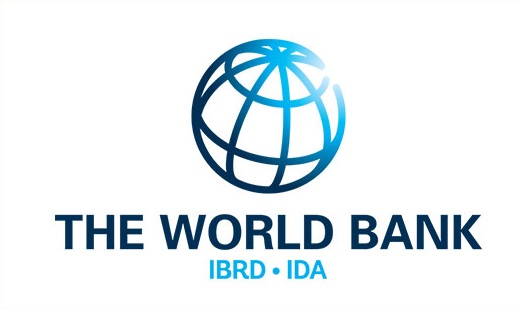
Dr. Ajitava Raychaudhuri
Professor, Department of Economics, Jadavpur University, IndiaA Ph.D from American University (USA), Ajitava Raychaudhuri is Professor and former Head and Coordinator of Centre for Advanced Studies, Department of Economics, Jadavpur University, Kolkata, India.
He was a senior Fulbright Scholar at Economic Growth Center, Yale University and Reid Hall Scholar in Residence of Columbia University, Paris Campus. He was visiting faculty at Indian Statistical Institute (Calcutta), Calcutta University and Indian Institute of Foreign Trade (Calcutta). He had undertaken several important projects from UNESCAP, ADB, World Bank, UNDP, PEP, GDN, IPPG, SANEI, Finance Commission, Planning Commission etc. He has also written numerous papers in international and national journals and edited books. Among his notable books are India’s Exports: An Analytical Study (with Sugata Marjit) published by Oxford University Press and International Trade in Services in India: Implications for Growth and Inequality in a Globalising World (with Prabir De) also from Oxford University Press. He also authored two District Human Development Reports for West Bengal (with Sushil Haldar) published by UNDP and Planning Commission of India. His forthcoming edited book (with Prabir De) is on Myanmar’s Integration with the World to be published as Palgrave Macmillan series by Springer.
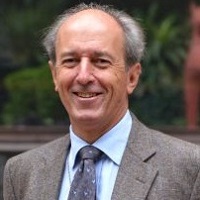
Dr. Martin Rama
Chief Economist, South Asia Region, World BankDr. Martin Rama is the Chief Economist for the South Asian region of the World Bank. He is the Former Director of the World Development Report (WDR) and Former Lead Economist for Vietnam, based in Hanoi.
In this capacity, he oversaw the World Bank program in the country in areas related to economic policy and poverty reduction. Dr. Rama obtained his PhD on Macroeconomics in France in the year 1985. Back to his home country, Uruguay, he worked in CINVE, the country’s largest think tank, and became one of its directors. In parallel with his World Bank duties, he was a Visiting Professor of Development Economics at the University of Paris until 2005. His recent publications include “Households or locations? Cities, catchment areas and prosperity in India”, “The recent disinflation and its implications: getting prices right”, “Addressing inequality in South Asia” etc.
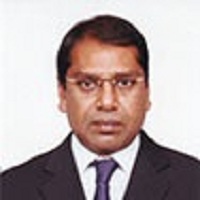
Dr. Bazlul Haque Khondker
Chairman, SANEM and Professor, Department of Economics, University of DhakaDr. Bazlul Haque Khondker is Professor at the Department of Economics, University of Dhaka and the Chairman of the South Asian Network on Economic Modeling (SANEM). He holds a PhD from the University of Warwick, UK. His areas of expertise include construction of technical framework for the Five Year Plan of Bangladesh, assessing resource gaps, implications of various investment intervention (including MDGs) using consistent Macroeconomic Framework,
construction of Social Accounting Matrices (SAM), analysis of poverty and income distribution and impacts of trade and tax policy reforms using static as well as dynamic Computable General Equilibrium models. Dr. Khondker was involved in designing and implementing a Generalized Macro Economic framework on behalf of UN Regional Bureau for the Asia and Pacific (UN RBAP) to develop MDG financing strategy within the framework of MTBF and LTMF, which has been used in Mongolia and Nigeria to develop their MDG financing strategies. He has presented his analytical works in conferences held in Dhaka, The Hague, Quebec city, Kampala, Bangkok, Kathmandu, Colombo, Nairobi (Kenya), Abuja (Nigeria), Yaoundé (Cameroon) organized by organizations such as UNDP countries offices, UNDP regional Canters in Asian and Africa, the World Bank, the Asian Development Bank and the International Labour Organization.
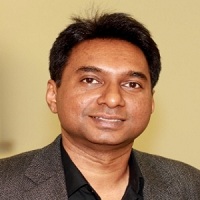
Dr. Selim Raihan
Executive Director, SANEM and Professor, Department of Economics, University of DhakaDr. Selim Raihan is Professor at the Department of Economics, University of Dhaka and the Executive Director of the South Asian Network on Economic Modeling (SANEM). He holds a PhD from the University of Manchester, UK. Dr. Raihan possesses vast expertise in research on international trade and trade policy issues related to the WTO, regional trading agreements and domestic trade policies.
He has worked quite extensively on Applied Economics, especially assessing impacts of trade and economic policies, using country specific Computable General Equilibrium (CGE) models, GTAP models, Social Accounting Matrix (SAM) techniques, WITS/SMART partial equilibrium models, and dynamic stochastic general equilibrium (DSGE) model. He has experience in research on poverty and labour market dynamics using household survey data and micro- and macro-econometric modeling and estimation techniques. His research interests also include analysis of economic growth and political economy analysis of growth and development. He has a long experience in teaching international trade, economic modeling, quantitative economics, econometrics, development economics and poverty dynamics at Dhaka University. Dr. Raihan has worked for several national and international organizations including the Asian Development Bank, the World Bank, UNDP, UNESCAP, UNCTAD, IFPRI, the Commonwealth Secretariat, FAO, European Commission, ILO, IDRC, DFID etc.
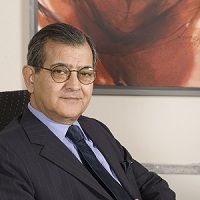
Ambassador Farooq Sobhan
President, Bangladesh Enterprise Institute, DhakaAmbassador Farooq Sobhan is the President and CEO of the Bangladesh Enterprise Institute (BEI).Ambassador Sobhan was Executive Chairman, Board of Investment (BOI) and Special Envoy to the Prime Minister 1997-1999 and Foreign Secretary 1995-1997. He has also served as Ambassador/High Commissioner to India, China, Malaysia and the United Nations.
He visited Washington and the United Nations in New York in May 2007 as the Special Envoy of the Present Caretaker Government, with the rank and status of a Cabinet Minister. Ambassador Sobhan served as Chairman of the Group of 77 at the UN 1982-1983, and was Chairman, UN Commission on TNCs 1991-1992. He is a member of the Board of Governors of the South Asia Centre for Policy Studies (SACEPS), based in Kathmandu and was Co-Chairman of the Coalition for South Asian Co- operation (CASAC) from 1994-2001. He was a visiting professor at the Elliott School for International Affairs at George Washington University in 2003, where he taught a post graduate course on South Asia. He is the Chairman of the Board of Trustees of the independent Centre for Corporate Social Responsibility (CSR), established in Dhaka in September 2007. He is the Chairman of an Advisory Committee on Counter Terrorism established in 2006, which includes senior officials of the government. Ambassador Sobhan has been a key-note speaker on various aspects of private sector development at conferences organised by the World Bank, IFC and DFID. He has over the years served on a number of international panels and advisory committees. He is currently a Member of the International Advisory Committee of the Asia Society in the U.S., the Round Table in the U.K., a Commissioner of the Ramphal Centres’ Commission on Migration and Development, a Board Member of the South Asian Center for Policy Studies and a member of the Commonwealth Policy Studies Unit in the U.K. He is a Patron of the Ramphal Centre in London. He chaired the Task Force established by the Asia Foundation in 2004 on “The US Role in South Asia”. Ambassador Sobhan has written extensively on international affairs and relations. His publications include a book entitled “Opportunities for South-South Co-operation” and as coauthor, “Shaping South Asia’s Future: Role of Regional Co-operation”. He has edited the following BEI publications: “Strengthening Cooperation and Security in South Asia Post 9/11”, “ Bangladesh-India Dialogue: Vision of Young Leaders”, “Dynamics of Bangladesh-India Relations: Dialogue of Young Journalists Across the Border”, “A Comparative Analysis of Corporate Governance in South Asia: Charting a Roadmap for Bangladesh” “Reducing the Cost of Doing Business in Bangladesh”, “Study of e-Commerce in Bangladesh”, “Study of e- Government in Bangladesh”, “Countering Terrorism in Bangladesh” and, “Trends in Militancy in Bangladesh: Possible Responses”, “Bangladesh-India Relations: Security Perspectives”, and Bangladesh-India Relations: Security Issues and Cooperation.

Dr. Ipshita Pal
Postdoctoral Research Scientist, Columbia University, Fellow, Columbia Population Research CenterOne of the founding members of SAESM, Ipshita Pal is currently a Postdoctoral Research Scientist at Columbia University and a Fellow of the Columbia Population Research Center. Her research interests center around public and organizational policies and employee well-being.
She is currently working on the “2016 National Study of the Changing Workforce”, an external project from the Families and Work Institute and the Society for Human Resource Management, looking at factors that shape employee outcomes. She is particularly interested in understanding factors that shape women’s role and trajectories in the labor market. Her research on working mothers has been published by the Russell Sage Foundation and featured in the Washington Post and the Wall Street Journal. She has previously conducted needs assessments and project evaluation in both urban and rural communities in India, helped found a non-profit in New Delhi for human rights based advocacy work for women and children trafficked for commercial sex work and conducted large-scale youth mobilization initiatives related to human rights advocacy. Pal holds an MSc. in Comparative Social Policy from the University of Oxford, UK, an MSW from the University of Delhi, India, and a BA (Honours) in Economics from the University of Delhi, India. She received her PhD in 2016, also from Columbia University where she specialized in Social Policy and Policy Analysis. Her doctoral dissertation is titled “Work, Family and Social Policy in the United States –Implications for Women’s Wages and Wellbeing”.
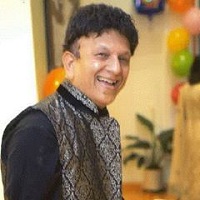
Dr. Abdullah Shibli
International Sustainable Development Institute (ISDI), Boston, MADr. Abdullah Shibli has a PhD and MA in Economics from Boston University and a BA (Honors) and MA in Economics from Dhaka University. He has published several books and numerous articles on economics, environmental policy, and information technology in refereed professional journals.
He was a faculty member of Dhaka University for 12 years, and worked for the World Bank and Harvard University. Currently he lives in Boston, USA and works as Information Technology Training Coordinator in a healthcare agency affiliated with Boston Medical Center. He writes a regular column, short stories, and the column “Letter from Boston” for the Literature Section of The Daily Star.
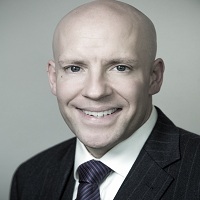
Mr. Richard M. Rossow
Wadhwani Chair in U.S. India Policy Studies, The Center for Strategic and International Studies, Washington, DCRichard Rossow is a senior fellow and holds the Wadhwani Chair in U.S.-India Policy Studies at CSIS. In this role he helps frame and shape policies to promote greater business and economic engagement between the two countries. He joined CSIS in 2014, having spent the last 16 years working in a variety of capacities to strengthen the partnership between the United States and India.
Prior to CSIS, he served as director for South Asia at McLarty Associates, leading the firm’s work for clients in India and the neighboring region. From 2008 to 2012, Mr. Rossow was with New York Life Insurance company, most recently as head of International Governmental Affairs, where he developed strategic plans for the company’s public policy and global mergers and acquisitions work. From 1998 to 2008, Mr. Rossow served as deputy director of the U.S.-India Business Council (USIBC), the world’s leading advocacy group on behalf of strengthening economic ties between the United States and India. While at USIBC, he managed the Council’s policy groups in the energy, information technology, insurance, media and entertainment, and telecommunications sectors. Mr. Rossow received his B.A. from Grand Valley State University in Michigan.
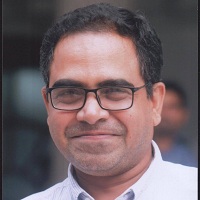
Dr. Kazi Maruful Islam
Professor Department of Development Studies, University of Dhaka, and Member, Center on Budget and PolicyDr. Islam has been engaged in the academia and development practices for more than 20 years with proven track record in conducting research, budget analysis, project and program design and evaluation. He has been actively engaged with democratic budget movement and other forms of social and academic activism for a democratic policy space in Bangladesh.
He worked as a governance specialist for various research projects within and outside Bangladesh. He has extensively worked with Bangladesh National Parliament, government ministries and civil service organizations. Currently, he teaches Politics of Development, Qualitative Research Methodology, Public Policy Analysis and Civil Society and Development. He has a Masters of Philosophy from the University of Bergen, Norway; and Doctorate from the University of Heidelberg, Germany.
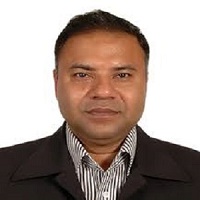
Dr. Mohammad Abu Eusuf
Professor, Department of Development Studies, University of DhakaDr. Mohammed Abu Eusuf is currently a Professor at the Department of Development Studies, University of Dhaka. He obtained his PhD in Development Economics from University of Manchester, UK and his M.A. in Development Economics from Institute of Social Studies (ISS), The Hague, The Netherlands. Prior, he completed his Masters and Bachelors in Economics from Jahangirnagar University. His research interest includes Poverty, Budget, Trade, Microfinance, Social Protection, Property Rights and Land Reform.
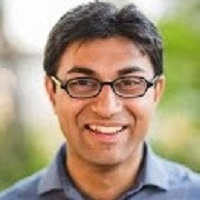
Dr. Ammar Farooq
PhD, Georgetown UniversityAmmar Farooq holds a PhD in Economics from Georgetown University. He graduated in May 2017. His research explores the implications of heterogeneity in labor markets on aggregate productivity and the impact of public policy in improving labor market efficiency. In Ammar's work, he borrows heavily from the literature on search models of the labor market where heterogeneity in the labor market impacts aggregate outcomes.

Dr. Robert Carl Michael Beyer
World Bank, Washington, DCRobert is a macro economist in the office of the Chief Economist for South Asia at the World Bank and the lead author of the South Asia Economic Focus. Before joining the Bank last year, he completed his PhD at Goethe University in Frankfurt, Germany and conducted research at the European Central Bank and the International Monetary Fund.
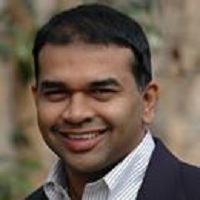
Dr. Ravindra A. Yatawara
Senior Economist, World BankRavi Yatawara is a part of the World Bank’s Trade and Competitiveness practice, working on South Asia regional integration, foreign investment and global value chains. He co-leads work on intra-regional foreign investment throughout the entire region and FDI’s relationship to trade. He is a core team member of the Bank’s global value chain community on apparel. His previous work with a global focus has included the impact of the global recession on trade, regional integration and product development, FDI and jobs, competitiveness and gender, and the political economy of reform. He has held faculty positions at Columbia University and the University of Delaware, and has also worked for the government of Sri Lanka. He received a B.A (Phi Beta Kappa) from Reed College, and a Phd in Economics from Columbia University.

Ms. Sarita Bartaula
Director, Bikass UdhyamiSarita Bartaula is a youth activist working with youth in the field of civic education, democratization, informal economy and integrity. She is leading a non-profit youth led organization called Youth Initiative.
She has experience in the field of democratization process, governance, civic leadership, youth and women empowerment both as developing and implementing youth empowerment and engagement programs and project as well as strengthening organizational capacity. She has consulted with Ministry of labour as the researcher and has published research on “informal labor market: non- Nepali labor in Kathmandu” and similarly in Ministry of Economics as the researcher on “Impact of informal market and money laundering”. She is graduate of Girls lead exchange program.

Mr. Mabruk Kabir
Education Specialist, World BankMabruk Kabir is an Education Specialist with the World Bank's Education Global practice, where he works on primary and secondary education as well as skills development projects across South Asia. He joined the Bank in 2011, and previously worked with the Bank's Poverty Reduction and Economic Management network, a division working on growth, debt, trade, gender, and governance.
Ms. Sundas Liaqat
Consultant, World BankMs. Sundas Liaqat graduated from American University this year, where she was pursuing a Master's degree in Economics and a Master’s degree in Social Enterprise. Sundas is a gender analyst by training and aims to practice policing and evaluating international development practices and interventions for gender compatibility. Currently Sundas is working as a consultant with the Gender Innovation Lab in East Asia and Pacific region at the World Bank. She hopes to pursue a career advocating for women rights all over the globe with empathy and compassion.
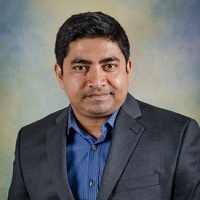
Mr. Mir Nahid Mahmud
PhD Candidate, State University of New York, AlbanyMir Nahid Mahmud is a PhD Candidate, State University of New York, Albany. He completed his MSc in Economics University of Warwick. After graduating from University of Dhaka, Nahid started his career at SANEM as a Research Associate in 2007 and worked there for 6 months. He joined University of Dhaka as Lecturer in Economics Department in 2008. Currently, he is working towards finishing his PhD degree at SUNY, Albany. His research area is Health Economics and Policy Evaluation.

Mr. Moogdho Mim Mahzab
PhD student, University of VirginiaMr. Moogdho Mahzab is pursuing Ph.D in Economics at the University of Virginia. Prior to that, he has obtained MA in Policy Economics from Williams College, USA under the US Fulbright Scholarship and also has done BSS and MSS in Economics from University of Dhaka.
He has worked as an Economist at Bangladesh Institute of Development Studies and South Asian Network on Economic Modelling (SANEM), in Bangladesh. He works mainly on Applied Microeconomics, specifically, Public, Labor and Trade are his focus with a Development bend to it.

Ms. Saswathi Natta
Doctoral student, University of MarylandMs. Saswathi Natta is a Doctoral student at the University of Maryland. She is currently working on research related to inequalities in financial inclusion in India and gender differentials in education.
Her previous work includes a year-long fellowship in the microfinance industry in India, experience at Lok Foundation as a Research Associate working with survey creation and data analysis, and as a Research Assistant at the Center for Advanced Study of India at Upenn working on MSME data from the Indian census and qualitative interviews. She also has experience with the National Human Rights Commission of India, and at the Princeton Plasma Physics Lab. Saswathi also has 2 years of moderator experience leading discussion groups focused on social identity through the Sustained Dialogue Campus Network. She holds a B.S.E in Electrical Engineering and a certificate in South Asian Studies from Princeton University.

Ms. Maria Philip
Program Assistant, South Asia at the Center for International Private Enterprise (CIPE)Ms. Maria Philip is a program assistant for South Asia at the Center for International Private Enterprise (CIPE), where she supports projects in Nepal and Sri Lanka, as well as a regional women’s business network.
Key themes in her work are public policy analysis, private sector development, and gender-sensitization in economic policymaking. Prior to joining CIPE, Ms. Philip was with the Wadhwani Chair in U.S.-India Policy Studies at the Center for Strategic and International Studies. She has additionally worked for migration research and advocacy organizations in Kolkata, India and Buffalo, New York. She received a B.S. from Georgetown University’s School of Foreign Service.
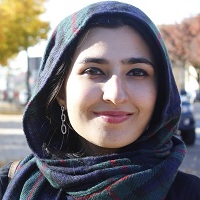
Ms. Maria Qureshi
Consultant, World BankMaria has a career in international development and she is currently working at World Bank headquarters in DC as part of the Education team. She has developed and piloted Service Delivery surveys to analyze performance of education systems in South Asia, including building comprehensive teacher and student assessments consistent with International Large Scale Assessments.
She has a career in international development. Recently, she had been working with McKinsey and Company on a DFID-UK funded project supporting the Government of Pakistan to improve the quality of education in public schools. She was responsible for developing teacher training and mentoring programs for over 185,000 teachers as well as designing training material and conducting province wide leadership and capability building workshops for senior education management officials. She has also been a part of the Social Innovation Lab, the first social enterprise incubator in Pakistan where she designed and led several training sessions on human centered design thinking and business canvas model. Prior to that, she has been managing several donor and government funded projects aimed at improving universal primary enrolment, improving multi-grade teaching and curriculum to name a few. Maria is a Fulbright Scholar and has a Masters in Non-Profit Leadership from the University of Pennsylvania.
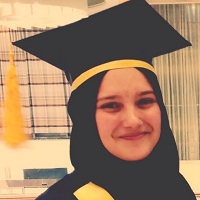
Ms. Bibi Roquiya Sayeq
Pricing Specialist at CoreCentric SolutionsMs. Bibi Roquiya was a SAESM participant at the 2014 Bhutan and 2016 Sri Lanka events. She currently works as a Junior Pricing Specialist at CoreCentric Solutions. Bibi Roquiya has a bachelor’s degree in Economics with a focus in Statistics and Econometrics from Kabul University, Afghanistan. She values her experience in the SAESM profoundly and sees the event of the forum as a unique and coherent platform in the South-Asian community.

Mr. Karan Kumar
PhD candidate, McGill UniveristyI hold a Bachelors and Masters degree in Economics and am pursuing my PhD in Ecological Economics from McGill University. I am also a part of the Economics for the Anthropocene research program, a graduate training program for understanding the relationship between the economy and the biosphere. In particular, my research aims at understanding how India can efficiently provide adequate nutrition to its growing population. Efficiently here is not only in the conventional economic sense of minimum cost of transfer from field to the plate but also reducing environmental degradation in this process. Understanding this interpretation of efficiency is very important to understand the underlying agrarian crisis in India.
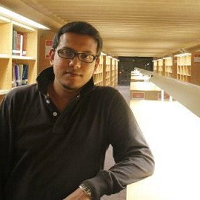
Mr. Syed Md. Ishraque Osman
PhD student, Texas Tech UniversityMr. Osman is currently a PhD student at the Texas Tech University. He completed his M.Sc. in International Trade, Finance and Development from Barcelona Graduate School of Economics. Prior, he did his M.S.S. and B.S.S. from University of Dhaka. He is currently a Graduate PT instructor at the Texas Tech University. He has also worked as a Lecture of Economics at ULAB and AIUB, Bangladesh. Mr. Osman has also worked as a Research Associate at the Harvard Kennedy School.
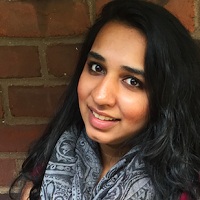
Ms. Shiva Chakravarti Sharma
Graduate student, George Washington UniversityShiva Chakravarti Sharma is a Public Policy graduate student at George Washington University. She graduated with a bachelor’s degree in Economics and Political Science from University of Minnesota. Previously, she worked at the Centre for Policy Research, New Delhi as a Research Assistant. She is currently working with the Sigur Centre of Asian studies as a Research Assistant.
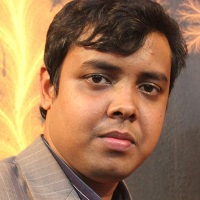
Mr. Md Abdur Rahim
Graduate student, The University of WinnipegMr.Rahim is doing Masters in Economics at the university of Winnipeg. His research interest in environmental and development economics. His master’s thesis is determinants of labor market participation in Bangladesh: A gender sensitivity analysis. He is also a Queen Elizabeth scholar of university Canada and research intern at the Manitoba Metis Federation. Prior to that, he was a Research Associate at SANEM and worked different development research projects.
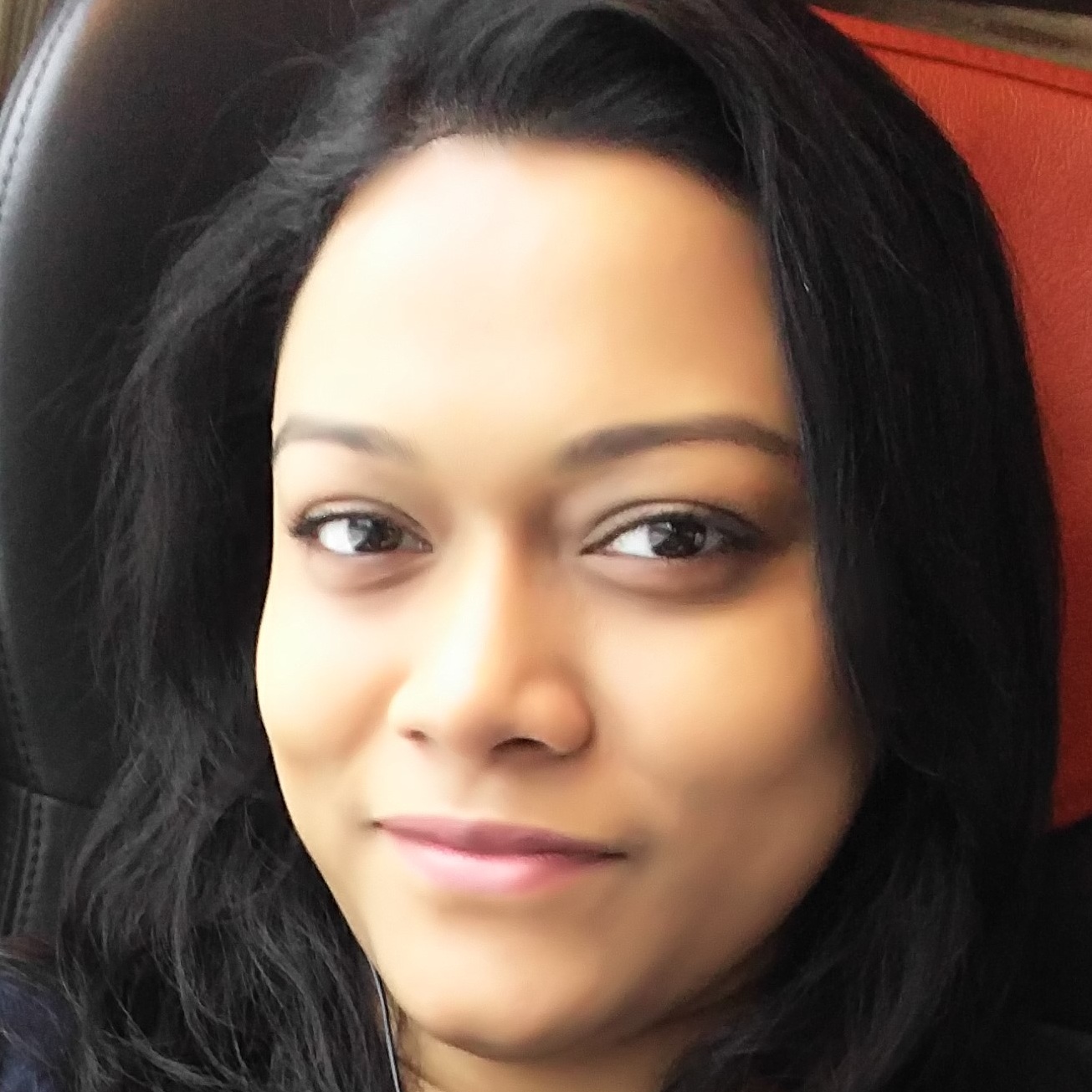
Ms. Nusrat Jahan
Doctoral student, Department of Economics, Carleton UniversityNusrat is a doctoral student at the Department of Economics, Carleton University. She completed her M.A in Economics from Department of Economics, Carleton University. Prior to that she obtained her B.S.S (Economics) and M.S.S (Economics) from University of Dhaka.
She is currently working as a Graduate Student Instructor and a Graduate Teaching Assistant at Carleton University. Before joining the Ph. D program, she worked as a lecturer at Independent University, Bangladesh. Her research interests are in the field of macroeconomics, macro-finance and business cycles. Her current research focuses on the impact of financial constraints on business cycle through firm balance sheet channels.

Ms. Fatima Tuz Zohora
Ph.D. Student, University of OttawaFatima Tuz Zohora is a Ph.D. student in economics at University of Ottawa, Canada. She worked as a research associate at South Asian Network on Economic Modelling (SANEM). Her research focuses on poverty, labor market and international trade.Fatima received Queen Elizabeth II Diamond Jubilee scholarship and President’s Scholarship for World Leaders. As a QEscholar she was involved in research on ‘Basic income access in Canada’ and participated in different volunteering activities. Prior to enrolling at Ottawa, she completed her MA in economics from University of Winnipeg. She holds a master’s degree and a B.S.S in Economics from the University of Dhaka, Bangladesh.
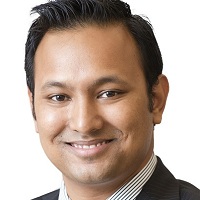
Mr. Abir Chowdhury
Account Manager, TD Canada TrustAbir Chowdhury is a business banking account manager at TD Bank in Kingston, Ontario. He finished his MBA with a finance concentration from University of Ottawa in 2015. He also has a BSS and MSS degree in economics from University of Dhaka.
Flat K-5, House 1/B, Road 35, Gulshan 2,
Dhaka 1212, Bangladesh
Phone : +88 02 58813075
Fax : +88 02 9883445
Email : sanemnet@yahoo.com
web: http://www.sanemnet.org